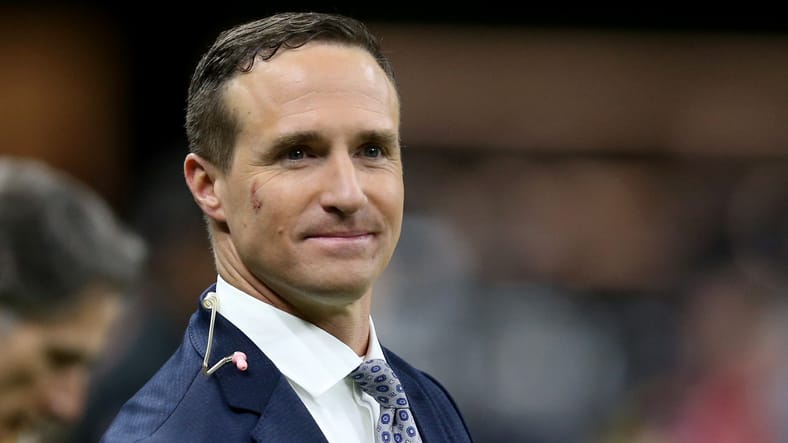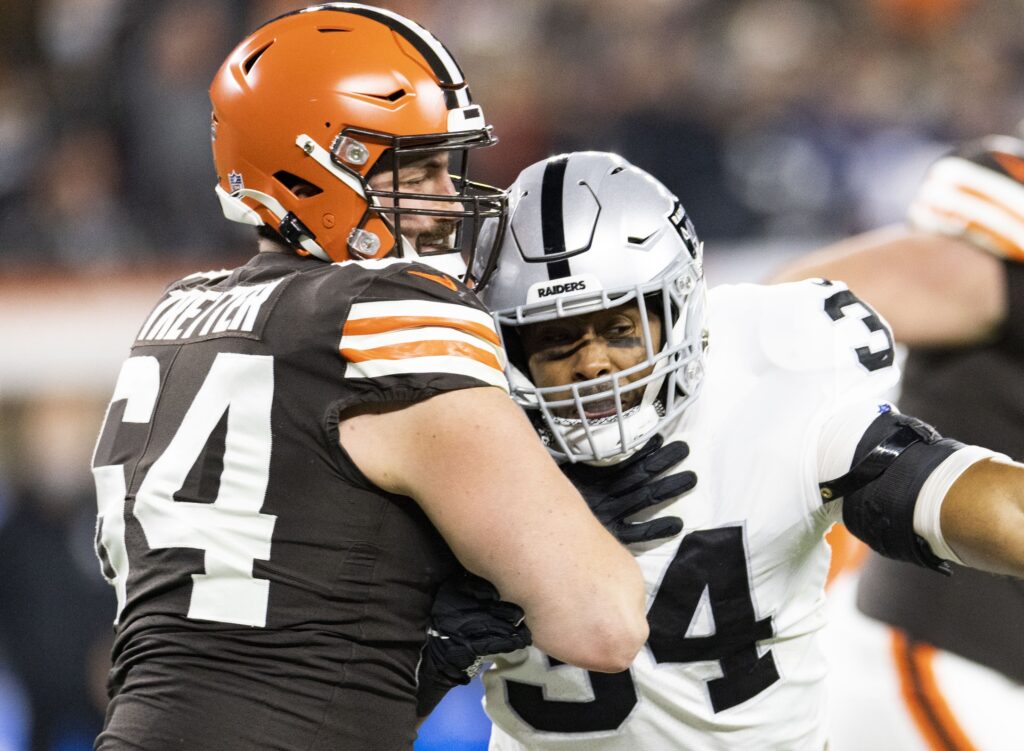Five Reasons We Shouldn’t Blame Brett Favre For The 2009 NFC Championship Loss

It should have been the ultimate trump card. After 16 seasons with the Green Bay Packers, and a one-year stint with the Jets, Hall of Fame quarterback Brett Favre made his way to our beloved Minnesota Vikings in August 2009.
The owner of every major passing record at the time had a fallout with Green Bay and looked to stick it to them any way possible. The three-time MVP eventually got to the Vikings, knowing he had two shots to show the Packers what they were missing. Favre delivered each time, led the Vikings to a 12-4 record, and had the best statistical season of his career in 2009.
The Vikings would travel to New Orleans to face the Saints for the NFC Championship on January 24, 2010. The winner would face the Indianapolis Colts in Super Bowl XLIV. Most blame Favre for losing the game, as he threw an interception at the end of regulation with the Vikings already within field goal range. The Saints would get the ball to begin overtime, marching down the field to boot a field goal and win 31-28.
But after I had another thorough rewatch (and alienated half of Vikings Twitter), today we look back at five reasons we shouldn’t pin the loss on Favre.
Fumbles
At first glance, it appears that Favre contributes to this category. According to the box score, Favre, along with wide receivers Percy Harvin and Bernard Berrian, lost a fumble during this game.
However, Favre was credited with a fumble on a handoff exchange following the Saints’ lone turnover of the contest. On second down at the Saints’ 4-yard line, running back Adrian Peterson prematurely closed his arms, leading to a fumble that was recovered by Saints linebacker Scott Fujita. New Orleans was content with the outcome, feeling relieved to take a 14-14 tie into halftime.
Peterson would officially fumble twice during the game. Luckily, he recovered one and the other was recovered by fullback Naufahu Tahi. They were embarrassing plays, but neither ultimately took points off of the board for the Vikings.
Minnesota would fumble on their first two drives of the fourth quarter. Harvin fumbled on the second play of the quarter, leading to a seven-yard touchdown drive by the Saints. One drive later, the Vikings got inside the Saints’ redzone, only to see Berrian fumble at the 10-yard line.
Bounty Gate
One of the biggest storylines of the game was the amount of hits that Favre was taking. Some were legal, others were borderline, and others were blatantly illegal.
The Saints were hitting Favre early and often. He got de-cleated by Saints defensive end Bobby McCray after handing the ball off to Harvin on an end-around. This drew one of only two personal foul penalties on the day for the Saints.
But it was a missed call that was the most egregious of the night. The game was tied 21-21, and the Vikings had the ball at the Saints’ 34-yard line. Favre fired a pass over the middle that was intercepted by Saints linebacker Jonathan Vilma.
However, the interception should have been overturned. Favre was hit on a “high-low” hit by McCray and defensive tackle Anthony Hargrove. It was a play that was as illegal then as it is now. Although Favre would have had to have left the game temporarily, the penalty would have set the Vikings up inside the Saints’ redzone. This would have almost assuredly given the Vikings a chance to gain a 24-21 lead.
12 Men In The Huddle
Despite all the unfortunate events that the Vikings encountered, they had the ball at the Saints’ 33-yard line with 1:06 left in regulation. Minnesota ran two consecutive plays, gaining zero yards, prior to calling a timeout with 19 seconds remaining. Even if they didn’t gain any yardage on third down, the Vikings were well within kicker Ryan Longwell’s range.
Unfortunately, chaos ensued on the Vikings’ sideline. Two different personnel groupings were called, and Tahi was the extra man in the huddle. The Vikings were penalized for having too many men in the huddle, and the five-yard penalty forced them to pass. That play would be where Favre threw the infamous interception.
Unfortunate Bounces
Sometimes, the ball just doesn’t bounce your way. While the Vikings were getting decimated by turnovers, the Saints were able to mostly avoid them. Twice, Brees threw passes that should have been intercepted by the Vikings. In the second quarter, Leber dove and nearly intercepted a pass. Had he not gotten his hands on the ball, safety Tyrell Johnson would have caught the pass between the numbers.
Ironically, Johnson dropped an interception in overtime that popped out of Saints receiver Marques Colston’s hands. It was a bang-bang play that looked much easier in slow-motion, but a play that championship teams need to make.
Even near the end of regulation, Brees got strip-sacked by Vikings defensive end Ray Edwards. Defensive tackle Kevin Williams appeared to have the best shot at recovering the ball, but Saints right tackle Jon Stinchcomb fell on the ball at the Saints’ 11-yard line. The Saints would end up punting, setting up the painful Favre interception. Sometimes, it just isn’t your day.
An Overtime Debacle
On top of Johnson’s dropped interception, overtime couldn’t have gone worse for the Vikings. Cornerback Cedric Griffin tore his ACL on the opening kickoff of the period. Even worse, the kickoff was run back to the Saint’ 39-yard line.
With Griffin out, the Saints targeted third-round rookie cornerback Asher Allen. He was called for a questionable defensive hold on 3rd-and-6, giving New Orleans a fresh set of downs.
On 4th-and-1 at the Vikings’ 43-yard line, Saints running back Pierre Thomas took a handoff and dove over the offensive line. He was met by linebacker Chad Greenway who knocked the ball loose, although Thomas never let the ball leave his body and the Saints were rewarded with the first down. After review, there wasn’t enough evidence to overturn the call, although one could make a case that piecing several clips together could have overturned the ruling.
It was then one play later when Leber was called for pass interference on a poorly thrown pass by Brees. The pass was so bad that his intended target, David Thomas, tripped over himself, leading Leber to then fall on top of him. Prior to that collision, Leber never touched Thomas. The Saints got the ball at the Vikings’ 29-yard line, and two plays later were set up in field goal position after a 12-yard completion to Robert Meachem. Two plays later, kicker Garrett Hartley sent the Saints to the Super Bowl with a 40-yard field goal boot.
To this day, this is the most painful memory I have as a Vikings fan. I was only six during the 1998 NFC Championship Game (which wasn’t Gary Anderson’s fault), so this one stands head-and-shoulders above the rest. This doesn’t mean that Favre is immune to any criticism for his mistake. But the team never would have been on the doorstep of the Super Bowl without him.

Purple PTSD Also Read: J.C. Tretter is Still a Free Agent
[brid autoplay=”true” video=”1044819″ player=”26281″ title=”WATCH%20Bengals%20Insider%20%20Breaking%20Down%20the%20Offensive%20Line%20Revamp” duration=”86″ description=”Crissy Froyd details the latest from the Cincinnati Bengals, detailing their offseason moves and additions.” uploaddate=”2022-07-01″ thumbnailurl=”undefined” contentUrl=”https://cdn.brid.tv/live/partners/17660/streaming/1044714/1044714.m3u8″ width=”16″ height=”9″]
